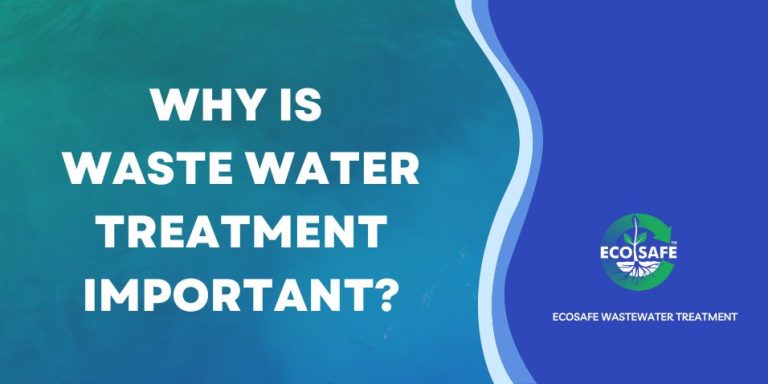The Best Strategy To Use For Reclaim Waste
The Reclaim Waste Statements
Table of ContentsFascination About Reclaim WasteThe Ultimate Guide To Reclaim WasteAbout Reclaim WasteAbout Reclaim WasteReclaim Waste Things To Know Before You Buy
Discover the types, events, and types of liquid waste. Residential sewage waste describes the waste and products from a residential sewage-disposal tank. This sort of waste is produced by human beings in residences, colleges, and other structures. This only consists of septic tanks that have a drain field. The proper monitoring and disposal of domestic sewage waste call for fluid waste to be transferred to a sewer therapy plant where the proper techniques and equipment are related to detoxify and dispose of waste.
Commercial waste usually includes possible hazards, such as combustible products or a combination of liquid and solid waste items, and needs a more sophisticated and detailed disposal procedure. The disposal of industrial waste commonly involves the filtering of waste before transport to make certain safe and appropriate disposal. Hazardous waste is produced from results and drainage of commercial procedures and manufacturing.
This kind of waste can not use the exact same sewer monitoring transport or procedures as septic or business fluids. The industrial waste monitoring procedure calls for the evaluation and testing of fluid waste before it undergoes the disposal procedure (liquid waste removal). Drainage waste is the fluid waste that originates from overflow and excess stormwater in very inhabited areas or cities
Overflow waste can trigger contamination and flooding if not dealt with effectively. Find out extra regarding drain cleaning and waste management. Guaranteeing appropriate waste administration can avoid disasters and decrease ecological harm. Both individuals in residential setups and experts in industrial or production sectors can gain from understanding the procedures and laws of fluid waste administration.
Facts About Reclaim Waste Revealed
Get in touch with PROS Services today to find out about our waste management and disposal solutions and the correct methods to care for the fluid waste you generate.
(https://www.slideshare.net/leonaube33101)
Do you know what takes place to your water when you draw the plug, flush the bathroom or drain the washing equipment? No? Well, it's worth understanding. This so-called 'wastewater' is not just a crucial resource but, after treatment, will be launched to our land, waterways or the sea. Used water from commodes, showers, bathrooms, kitchen sinks, washings and industrial procedures is known as wastewater.

water made use of to cool machinery or clean plant and tools). Stormwater, a kind of wastewater, is runoff that flows from agricultural and metropolitan locations such as visit roofing systems, parks, yards, roads, paths and rain gutters right into stormwater drains, after rain. Stormwater flows unattended directly to neighborhood creeks or rivers, eventually reaching the sea.
Top Guidelines Of Reclaim Waste
In Queensland, the majority of wastewater is treated at sewer therapy plants. Wastewater is transported from domestic or industrial sites through a system of sewers and pump stations, called sewage reticulation, to a sewer therapy plant. Local governments develop, maintain and run most sewer therapy plants. Operators are accredited under the Environmental Protection Act 1994 to discharge cured wastewater at an acceptable environmental requirement into rivers.
The Division of Natural Resources advises local governments regarding managing, operating and preserving sewerage systems and treatment plants. In unsewered areas, city governments may require householders to set up individual or family sewer therapy systems to treat residential wastewater from toilets, cooking areas, bathrooms and washings. The Department of Natural Resources authorizes using household systems when they are proven to be reliable.
The majority of stormwater receives no therapy. In some brand-new class, therapy of some stormwater to eliminate litter, sand and gravel has started using gross contaminant traps. Wastewater therapy takes place in 4 stages: Removes strong issue. Bigger solids, such as plastics and other things wrongly discharged to sewage systems, are eliminated when wastewater is gone through displays.
Wastewater after that streams into huge tanks where solids clear up and are removed as sludge. Grease and residue are skimmed from the surface. Makes use of tiny living organisms called micro-organisms to break down and get rid of remaining liquified wastes and fine particles. Micro-organisms and wastes are integrated in the sludge. Gets rid of nitrogen and phosphorus nutrients that might create algal blooms in our waterways and intimidate water life.
Some Known Details About Reclaim Waste
Nutrient elimination is not readily available in all sewage treatment plants because it calls for pricey specialized tools. It is coming to be more common in Queensland. Clear fluid effluent created after therapy may still contain disease-causing micro-organisms. If this effluent is launched into rivers such as rivers or the sea, the micro-organisms will eventually pass away out.

Most wastewater moves right into the sewerage system. Under the Act, regional governments carry out approvals and licences for eco pertinent activities (Ages) involving wastewater launches that could have a regional influence.
The Main Principles Of Reclaim Waste
Monitoring offers accurate information concerning water quality and can confirm that licence conditions are being satisfied. The info acquired with surveillance supplies the basis for making water top quality choices.